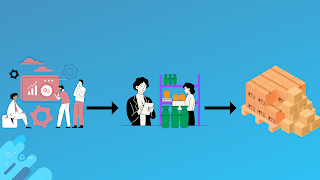In the fast-paced world of logistics, where every minute and every movement counts, efficiency is the name of the game. From inventory management to route optimization, businesses are constantly seeking ways to streamline their operations and gain a competitive edge. Enter Microsoft Azure AI integration – a game-changer that is revolutionizing the logistics industry.
Azure AI integration brings together the power of Microsoft's cloud computing platform with cutting-edge artificial intelligence capabilities. By harnessing the vast amounts of data generated in logistics operations and applying advanced AI algorithms, businesses can unlock valuable insights and drive efficiencies like never before. One of the key areas where Azure AI is making a significant impact is in business intelligence consulting. Traditionally, logistics companies have relied on historical data and manual analysis to make important decisions. However, with Azure AI, these companies can now leverage real-time data analytics to gain deeper insights into their operations.
For example, AI-powered predictive analytics can help logistics companies anticipate demand fluctuations and optimize inventory levels accordingly. By analyzing factors such as historical sales data, weather patterns, and market trends, Azure AI can generate accurate forecasts that enable businesses to stock the right products in the right quantities, minimizing stockouts and excess inventory.
Furthermore, Azure AI enables businesses to optimize their supply chain networks and transportation routes. By analyzing data on factors such as delivery times, traffic patterns, and fuel costs, AI algorithms can identify the most efficient routes for transporting goods. This not only reduces transportation costs but also ensures timely deliveries, enhancing customer satisfaction.
Moreover, AI applications in business extend beyond operational efficiency to customer service and experience. Azure AI-powered chatbots and virtual assistants can handle customer inquiries, track shipments, and provide real-time updates, freeing up human agents to focus on more complex tasks. This not only improves the efficiency of customer service operations but also enhances the overall customer experience.
Streamlining Operations with Azure OpenAI
1. Demand Forecasting and Inventory Management:
AI algorithms integrated with Azure OpenAI can analyze historical sales data, market trends, and external factors like weather patterns to predict future demand with remarkable accuracy. By forecasting demand more precisely, logistics companies can optimize inventory levels, minimize stockouts, and reduce excess inventory, thereby improving overall operational efficiency and customer satisfaction.
2. Route Optimization:
Efficient transportation is the backbone of logistics. Azure OpenAI's route optimization algorithms can analyze multiple variables such as traffic conditions, delivery windows, vehicle capacities, and fuel costs to determine the most efficient routes for transporting goods. By minimizing travel time and distance, logistics companies can reduce fuel consumption, lower transportation costs, and improve delivery times.
3. Warehouse Automation:
With the rise of e-commerce and omnichannel retail, warehouses are under increasing pressure to fulfill orders quickly and accurately. Azure OpenAI enables the implementation of robotic warehouse automation systems that can autonomously pick, pack, and sort items with speed and precision. By reducing the reliance on manual labor, warehouse automation not only increases efficiency but also minimizes the risk of errors and injuries.
4. Predictive Maintenance:
In logistics, downtime is costly. Azure OpenAI's predictive maintenance capabilities use machine learning algorithms to analyze equipment data and identify patterns indicative of potential failures before they occur. By preemptively addressing maintenance issues, logistics companies can minimize unplanned downtime, optimize equipment utilization, and extend the lifespan of their assets.
Real-World Impact
The integration of Azure OpenAI into logistics operations is already yielding tangible benefits for companies across the globe. From multinational corporations to small and medium-sized enterprises, organizations are leveraging AI-driven insights to streamline their supply chains, reduce costs, and enhance competitiveness in the market.
In summary, Microsoft Azure AI integration is revolutionizing the logistics industry by providing businesses with powerful tools to streamline their operations, optimize their supply chains, and deliver superior customer experiences. By harnessing the power of AI, logistics companies can stay ahead of the competition and drive growth in an increasingly competitive marketplace. Whether it's predictive analytics, route optimization, or customer service automation, Azure AI is transforming the way logistics companies do business, one efficient movement at a time.
.png)

Comments
Post a Comment